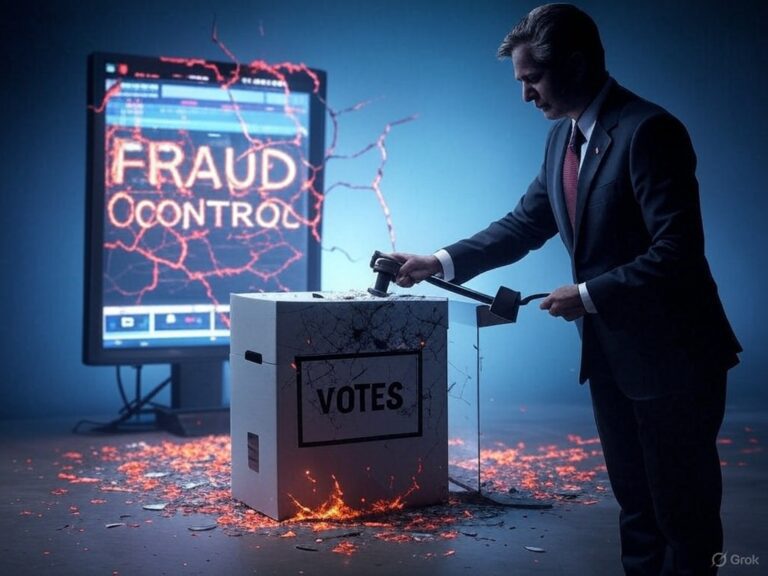Examining Nevada’s Assembly Bill 534: Concerns Over Election Transparency and Integrity
Nevada’s Assembly Bill 534 (AB534) has sparked widespread debate regarding the implications for election practices, local governance, and voter participation. Proponents argue that the bill is intended to modernize the electoral process, while critics raise alarms about potential threats to election integrity and accessibility for voters across the state. Below, we explore the main components of AB534 and their potential ramifications.
Electronic Voting Without Safeguards
One of the central features of AB534 is the strong push towards electronic voting systems. Critics highlight that the bill lacks specified safety and security protocols, leaving the electoral process vulnerable to hacking and manipulation. While incarcerated individuals are provided with a means to vote via paper ballots delivered by their attorneys, the majority of voters would be reliant on digital platforms. Cybersecurity experts have long cautioned against unmonitored electronic voting, noting the inherent risks associated with such systems.
Redefining Key Terminology
AB534 also introduces a rebranding of “provisional ballots” to “conditional ballots.” While this may appear to be a harmless change in terminology, it could incur significant costs for local governments. Counties would need to update election materials and training resources, resulting in an unnecessary financial burden for taxpayers without providing any real benefit.
Access and Notification Concerns
A significant alteration in AB534 is the removal of the requirement for election notices to be published in newspapers. Instead, notifications would be dependent solely on websites and social media. This could disadvantage seniors, rural residents, and others with limited internet access, effectively marginalizing segments of the electorate who rely on traditional methods of communication.
Changes to Petition Processes
The bill proposes an extension of the submission window for signatures on petitions. While this change is framed as an enhancement to efficiency, it may have the unintended consequence of delaying candidates from effectively mobilizing and addressing any issues with petition signatures. Such delays could favor established candidates and inhibit grassroots initiatives.
Centralization of Election Control
AB534 also introduces a shift in the control of ballot processing and counting, transferring authority from local clerks to the Secretary of State’s office. This centralization raises constitutional concerns, as it undermines the rights of counties to manage elections according to their specific needs. The bill mandates the use of mechanical voting machines, further restricting local discretion and eliminating options for manual counts in cases of suspected irregularities.
Challenges to Voter Validity
Voter challenges have been made more difficult under AB534 as it prohibits utilizing certain public database information, such as death records, to verify voter eligibility. This change could potentially allow deceased individuals’ names to remain on voter rolls, complicating efforts to ensure the integrity of the electoral process.
Implications for Voter Registration
The legislation does not address the requirement for U.S. citizenship in the voter registration process, a potentially significant oversight in a state where immigration is a contentious issue. This absence could facilitate opportunities for fraudulent registrations and voting activities.
Polling and Oversight Changes
AB534 allows for exit polling inside and outside polling places, redefining it as non-electioneering. This could create an environment where voter experiences and perceptions are influenced before they cast their votes, raising ethical concerns about the integrity of the voting process.
Public Response and Legislative Hearings
The response to AB534 has varied, with some labeling it a significant overreach that could undermine democracy in Nevada. Concerns around election transparency and the potential concentration of power within the Secretary of State’s office have highlighted the importance of public engagement in the legislative process.
How to Voice Your Opinion
As discussions surrounding AB534 continue, members of the public are encouraged to participate in the democratic process. Here are ways to express your thoughts:
- Attend the Hearing: Join the discussion in person at the Legislative Building in Carson City on April 10, 2025, at 3:30 PM.
- Phone Testimony: Call (888) 475-4499 during the hearing to voice your opinion.
- Submit Written Testimony: Email the Assembly Legislative Operations and Elections Committee with your stance on the bill.
- Engage Online: Share your opinions through the official bill submission platforms.
Conclusion
AB534 represents a significant shift in how elections may be conducted in Nevada, raising important questions about democracy, accountability, and the safeguarding of citizens’ rights. As the legislative process moves forward, it is essential for Nevada residents to stay informed and engaged, ensuring their voices are heard in matters that profoundly impact the electoral landscape.


